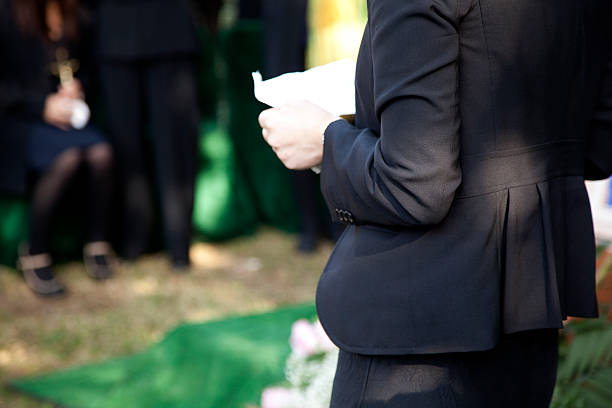Writing an obituary for a deceased loved one is difficult and time-consuming. The obituary expresses condolences and provides an overview of the deceased’s life. Several memorable phrases appear throughout the obituary. “Preceded in death” is a word used to situate the death of a loved one in the context of the family’s life. Here is a description of the term to assist you in writing the wording for an obituary.
What is the Meaning of "Preceded in Death"?
The obituary’s objective is to capture an overview of the deceased’s life. Speaking with the deceased’s closest relatives will help you figure out what function the deceased played in the family. The names of the surviving family members will be included once the obituary concludes. According to the obituary, the dead will also be “preceded in death” by select persons. This merely signifies that the deceased’s listed relatives died before him.
Difference Between Preceded and Predeceased
The terms “predeceased” and “preceded in death” have the same meaning. It is correct to indicate that his parents predeceased the subject of the obituary. Most people, however, prefer the phrase “preceded in death.” It has a more formal and less clinical tone to it.
Synonyms for the Phrase
The phrases “preceded in death” and “predeceased” are interchangeable. Many individuals prefer the former since it sounds less stilted while maintaining a formal air. Among the different expressions that could be used are:
- Passed away: The phrase “passed away” is frequently used to soften the sense of “dead.” This line in an obituary could read, “John’s wife Jane and his mother Joan died before John’s death.”
- Previously departed: As today’s families’ ties become more intricate, the phrase “previously departed” has become more popular. “Friends and non-relatives are identified as “previously departed,” while family members are described as “preceded in death.” Sally Smith, John’s close friend, was among the recently deceased loved ones.”
- Religious terms and symbols: When a loved one has a strong religious background, it is typical to utilize phrases in the obituary that echo religious sentiments. “In paradise, John is reunited with his parents, Joe and Mary Smith. He will also be reunited with his wife, Joan, who died a little more than a year ago.”
- Entered eternal rest: “Entered eternal rest” is another typical religious term. “John joins his wife Mary as they have reached eternal rest,” the obituary can say.
Who Should Have Their Name Mentioned in an Obituary?
Because an obituary is an official death notice, etiquette guidelines must be followed. Although there are regulations to follow, it is crucial to apply good judgment and respect the deceased’s desires. The listing of survivors and those who have died is one area that adheres to protocol.
Traditionally, the list featured only the deceased’s closest family members. Still, in today’s world of mixed families and ex-partners, the discretion is left to the writer of the obituary and the deceased’s sentiments. This is the sequence that should be followed for family and friends.
The spouse is always listed first, followed by the city in which the spouse resides. Use your discretion, but a companion who is not a spouse could fill this spot on the list. The children are listed after the spouse. If the children are with an ex-partner, the ex’s name may be here as well. The deceased’s parents get a special place on the list as well.
Next on the list would be extended family members. Grandchildren, grandparents, aunts, uncles, nieces, and nephews are the traditional order. Cousins may be included in the list depending on the size of the family. Including close pals on this list is becoming increasingly popular. These would come after the family.
Choosing the Appropriate Words for the Obituary
The obituary has consistently conveyed information about the deceased and their family for decades and is more prolonged. Tradition fosters safety and comfort, enabling the obituary writer to adhere to a predetermined format. However, if phrases like “preceded in death” are too formal for the deceased’s personality, different phrases might be employed to make the obituary more personal and meaningful.




